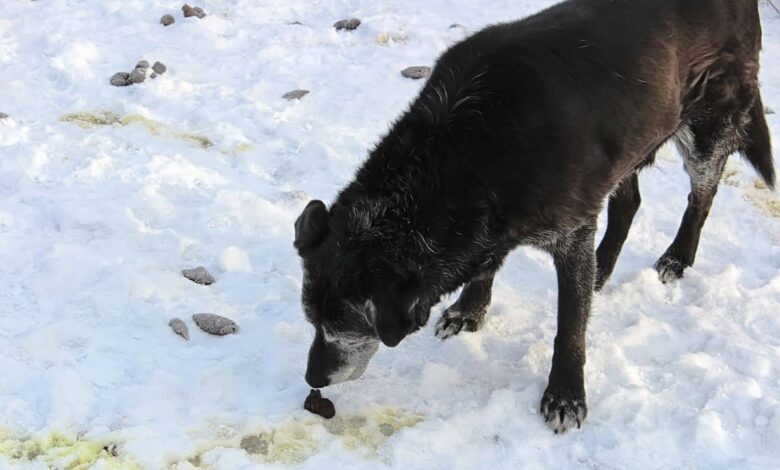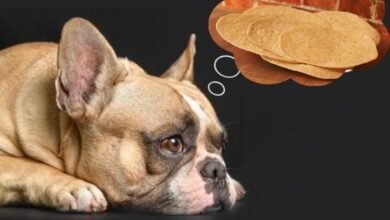
If you’re dealing with a dog that eats poop, you’re probably wondering how to stop a dog from eating poop and why it’s happening in the first place. Coprophagia, the scientific term for eating feces, is a common but unpleasant behavior among dogs. Although it may seem like an odd or gross habit, it is not uncommon and can be addressed. In this article, we’ll dive into the various causes of coprophagia and provide effective strategies to help you that how to stop your dog from eating poop.
What is Coprophagia?
Coprophagia is the act of consuming feces, and it’s something that many dogs engage in at some point in their lives. While it can be distressing for dog owners, it’s important to understand that it’s not necessarily a sign of a behavioral problem or something inherently wrong with the dog. It is simply a behavior that can be modified with the right approach.
The reasons behind coprophagia vary, and identifying the root cause can help you figure out how to stop a dog from eating poop in a way that is effective for your dog’s individual situation.
Common Causes of Coprophagia
Before exploring how to stop a dog from eating poop, it’s essential to understand the potential causes. Knowing why your dog engages in this behavior will guide you toward the most suitable solution.
1. Instinctual Behavior
- In the wild, dogs’ ancestors, such as wolves, may have eaten feces to keep their den clean and avoid attracting predators. This behavior, although rare, has been passed down to domesticated dogs. Puppies, in particular, might engage in coprophagia as a part of exploring their environment, much like they would chew on other objects to understand them.
How to stop a dog from eating poop in this case might involve teaching them to avoid feces in the environment through positive reinforcement and supervision.
2. Nutritional Deficiencies
One of the most common reasons behind coprophagia is nutritional deficiencies. If a dog is not receiving a well-balanced diet, they may turn to feces in search of the nutrients they are lacking. This is especially common in dogs that are fed a poor-quality diet or those that are not getting enough fiber, vitamins, or enzymes.
For example, if your dog is eating poop, they could be lacking in essential nutrients like:
- Digestive enzymes
- Fiber
- Minerals and vitamins
The best way to address this cause is to ensure that your dog is eating high-quality, nutritionally complete food. If you suspect a deficiency, it’s a good idea to consult with your veterinarian to see if a dietary change or supplement is necessary.
3. Boredom and Lack of Stimulation
- Dogs that are left alone for long periods or do not get enough physical or mental exercise may turn to eating feces out of boredom. Boredom can lead dogs to seek out new ways to entertain themselves, and coprophagia can unfortunately become one of these behaviors.
If your dog is engaging in poop-eating because they are bored, the solution is simple: provide more physical exercise and mental stimulation. Regular walks, interactive play, and puzzle toys can keep your dog engaged and prevent undesirable behaviors like coprophagia.
4. Anxiety or Stress
- Dogs that experience high levels of anxiety or stress may engage in coprophagia as a coping mechanism. Dogs with separation anxiety, for example, may resort to eating feces when they are left alone because it helps them relieve stress. Similarly, dogs that are stressed by changes in their environment, routine, or the presence of other animals may develop this behavior.
If your dog is eating poop because of anxiety or stress, the solution may involve addressing the underlying anxiety. Techniques such as crate training, providing a safe space, and using calming aids (like pheromone diffusers or calming treats) can help reduce stress.
5. Medical Conditions
- Certain medical conditions can also lead to coprophagia. Intestinal parasites, gastrointestinal disorders, and malabsorption diseases can cause a dog to seek out fecal matter due to a lack of proper nutrient absorption. For instance, dogs with pancreatic insufficiency or exocrine pancreatic insufficiency may eat feces because they are not absorbing the nutrients they need from food.
If you suspect that your dog’s poop-eating behavior is related to a medical condition, it’s essential to take them to the veterinarian for a thorough examination. Your vet can run tests to check for parasites or other gastrointestinal issues and recommend the appropriate treatment.
6. Mimicking Other Dogs
- Dogs are social animals and often learn behaviors by mimicking other dogs. If your dog observes another dog eating poop, they may imitate the behavior. This is particularly common in multi-dog households or when dogs interact with others at the park.
To prevent this, supervise playtime and train both dogs to avoid eating feces. Reward them when they avoid fecal matter and reinforce positive behavior with treats or praise.
7. Attention-Seeking Behavior
- In some cases, dogs may eat feces as a way to grab their owner’s attention. If your dog notices that eating poop leads to a reaction, whether positive or negative, they may continue the behavior. This is more likely to occur if the dog is not getting enough positive attention or interaction from their owners.
To address this, ensure that your dog receives plenty of attention, praise, and rewards for appropriate behavior. Avoid scolding or punishing them for eating poop, as this may inadvertently reinforce the behavior. Instead, redirect their attention to more acceptable activities and reward them when they avoid feces.
How to Stop a Dog From Eating Poop: Effective Solutions
Now that we’ve covered the causes of coprophagia, let’s explore effective strategies for how to stop a dog from eating poop:
1. Improve Their Diet
- If nutritional deficiencies are a factor, improving your dog’s diet is key. Ensure that you’re feeding a high-quality food that meets all of their nutritional needs. Consult with your veterinarian if you’re unsure about which food is best for your dog.
Additionally, consider adding fiber supplements or digestive enzymes to your dog’s food if recommended by your vet.
2. Use Taste Deterrents
- Products like For-Bid are designed to make feces taste unpleasant to dogs. These deterrents can be added to your dog’s food, and they will then make the poop taste bad to them. Over time, your dog will learn to avoid eating feces. Be sure to follow the product instructions carefully for the best results.
3. Increase Exercise and Mental Stimulation
- To prevent boredom and reduce anxiety, ensure your dog gets regular exercise and mental stimulation. Take your dog for daily walks, engage in interactive play, and provide puzzle toys that challenge them mentally. This can help redirect their focus away from eating feces and onto more appropriate activities.
4. Supervise and Clean Up Immediately
- Supervision is crucial when managing a dog that eats poop. Pick up your dog’s stool immediately after they go to the bathroom to prevent them from eating it. If your dog goes outside to relieve themselves, be sure to supervise them to ensure they don’t have the opportunity to eat their poop.
5. Behavioral Training
- Use positive reinforcement to train your dog to leave feces alone. Commands like “leave it” or “no” can be helpful when you catch your dog trying to eat poop. Reward them with praise or treats when they obey. Be consistent with your training and patient as your dog learns to avoid eating feces.
6. Consult a Veterinarian
- If your dog’s poop-eating behavior persists despite trying the above methods, it may be time to consult with a veterinarian. They can rule out medical conditions and offer further guidance on how to stop a dog from eating poop. Your vet may also recommend a specialized diet or behavioral therapy if needed.
Final Thoughts
How to stop a dog from eating poop requires patience, consistency, and an understanding of the underlying causes. Whether it’s due to instinct, boredom, anxiety, or nutritional deficiencies, the key to addressing coprophagia is identifying the root cause and implementing effective solutions.
By improving your dog’s diet, increasing exercise, using deterrents, and providing positive reinforcement, you can help your dog break the habit of eating feces. If needed, seek guidance from a veterinarian to ensure your dog’s health and well-being.
With the right approach, you can enjoy a poop-free household and a healthier, happier dog!



